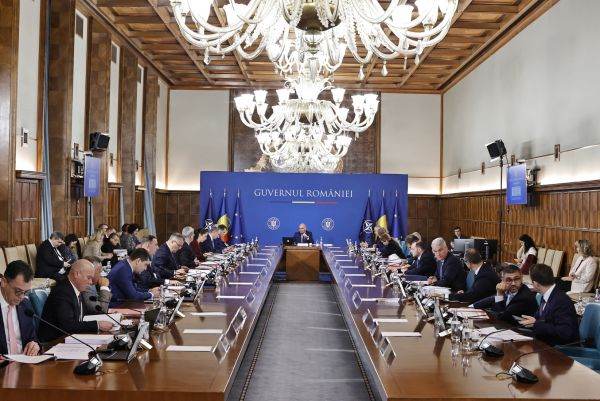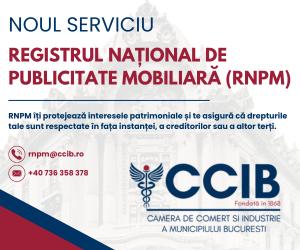The Government's decision to grant the head of the Prime Minister's Chancellery the final authority in approving SAFE projects, in situations where the participating institutions do not reach consensus, transforms the Chancellery into the main pillar for investments in the defense industry. This architecture gives the Executive a direct instrument of operational and political control over investment directions, at a time when competition between European Union member states focuses exclusively on the maturity, feasibility and strategic relevance of the projects proposed for financing.
The transformation of the Chancellery into the pivot of the entire decision-making flow reconfigures the traditional institutional relationships in the defense field, transferring responsibilities that, until now, belonged mainly to the Ministry of National Defense, into an area of political coordination directly under the authority of the Prime Minister. The inter-institutional structure activated by the decision published in the Official Gazette includes the Presidential Administration, the Ministries of Defense, Interior, Economy, Finance, Foreign Affairs, the Romanian Intelligence Service and, depending on the needs, SIE, STS or SPP, but the Chancellery is the institution that centralizes data, organizes meetings, develops syntheses and, finally, settles divergences.
The new mechanism is part of the European competition generated by the SAFE instrument, a financing program with significant economic stakes, through which the European Union aims to rapidly increase industrial military production capacities, from ammunition and armaments to electronic components and critical technologies. Member States do not benefit from proportional allocations, but compete directly based on the projects submitted, and the Commission's criteria target both existing industrial capacity and investment plans, technical feasibility and speed of implementation.
In this context, Romania starts with a structural disadvantage, marked by old industrial infrastructure, outdated technologies and limited production capacities, but is counting on institutional reorganization to recover the differences in the evaluation phase. The working group with extended responsibilities, whose meetings are not public and whose working documents are classified, has developed the SAFE National Investment Plan, a strategic document that will be debated today in the meeting of the Supreme Council of National Defense and, subsequently, will be transmitted to the European Commission.
Regarding SAFE, Prime Minister Ilie Bolojan stated in the press conference organized last Friday at the Victoria Palace: "Today, all the procedures through which the Government prepares the financing application, worth 16.6 billion euros, are concluded, of which 4.2 billion represent financing that will be allocated to the infrastructure component, and over 12 billion are endowments for the army and the Ministry of Interior. On the transport component, the largest allocation refers to the ends of the highway to Moldova. This means that the works that are currently being carried out in full force on the section between Bucharest and Paşcani will be continued in the coming years, so that, at the latest in 2029-2030, they will also be completed. Northern Romania would be connected to the south both on the Ukraine-Bucharest relationship and on the Republic of Moldova-Iaşi-Bucharest relationship. This project will be on the agenda of the CSAT meeting on Monday, then transmitted to the European Commission. At the latest in In the future, we will know exactly which projects are to be financed through this program. We will continue negotiations with the companies that provide equipment for the Romanian Army, but also with the countries with which we are to make joint purchases”.
At the same time, the respective national plan will determine the directions for the modernization of the Romanian defense industry in the next decade, establishing the projects eligible for financing, the priority industrial capacities, the co-financing requirements and potential international partnerships. For the industry, this document represents an essential landmark, especially given that access to European financing can compensate, at least partially, the technological gaps or the lack of investments in recent decades.
In parallel, the SAFE ordinance allows Romania to carry out military acquisitions through a direct negotiation procedure, without publication, a derogation intended to accelerate technical programs that are behind schedule. This approach can significantly reduce the time to contract for projects such as corvettes, drones, radars or armored personnel carriers, but it raises legitimate questions about transparency, selection criteria, price evaluation and the administrative capacity of the state to manage complex contracts at an accelerated pace.
The financial component remains one of the most important challenges. SAFE is a co-financing mechanism, which requires Romania to allocate its own budgetary resources, including for technical personnel, maintenance and related administrative expenses. The government has already introduced derogations that allow for additional hiring, thus recognizing the deficit of expertise in the area of institutions involved in project evaluation.
In geopolitical terms, the framework offered by SAFE allows Romania to participate in joint procurements alongside other member states, strengthening its position in European defense initiatives at a time when the strategic dynamics of the continent are rapidly transforming. Participation in such joint projects can reduce costs, shorten delivery times and increase Romania's negotiating capacity in relation to major international suppliers.

















































